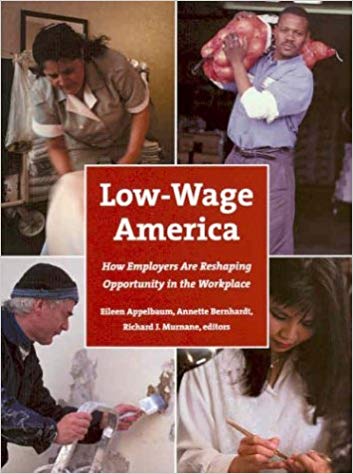October 01, 2004

About 27.5 million Americans—nearly 24 percent of the labor force—earn less than $8.70 an hour, not enough to keep a family of four out of poverty, even working full-time year-round. Job ladders for these workers have been dismantled, limiting their ability to get ahead in today’s labor market. Low-Wage America is the most extensive study to date of how the choices employers make in response to economic globalization, industry deregulation, and advances in information technology affect the lives of tens of millions of workers at the bottom of the wage distribution. Based on data from hundreds of establishments in twenty-five industries—including manufacturing, telecommunications, hospitality, and health care—the case studies document how firms’ responses to economic restructuring often results in harsh working conditions, reduced benefits, and fewer opportunities for advancement. For instance, increased pressure for profits in newly consolidated hotel chains has led to cost-cutting strategies such as requiring maids to increase the number of rooms they clean by 50 percent. Technological changes in the organization of call centers—the ultimate “disposable workplace”—have led to monitoring of operators’ work performance, and eroded job ladders.




